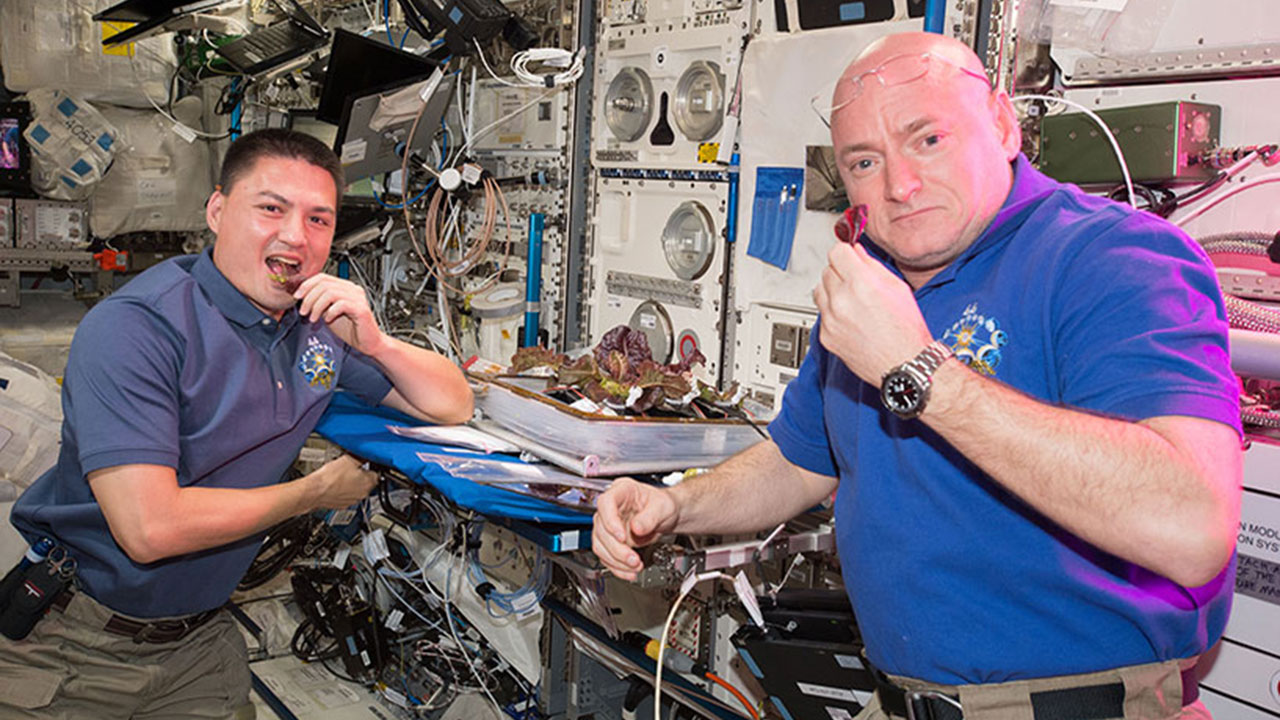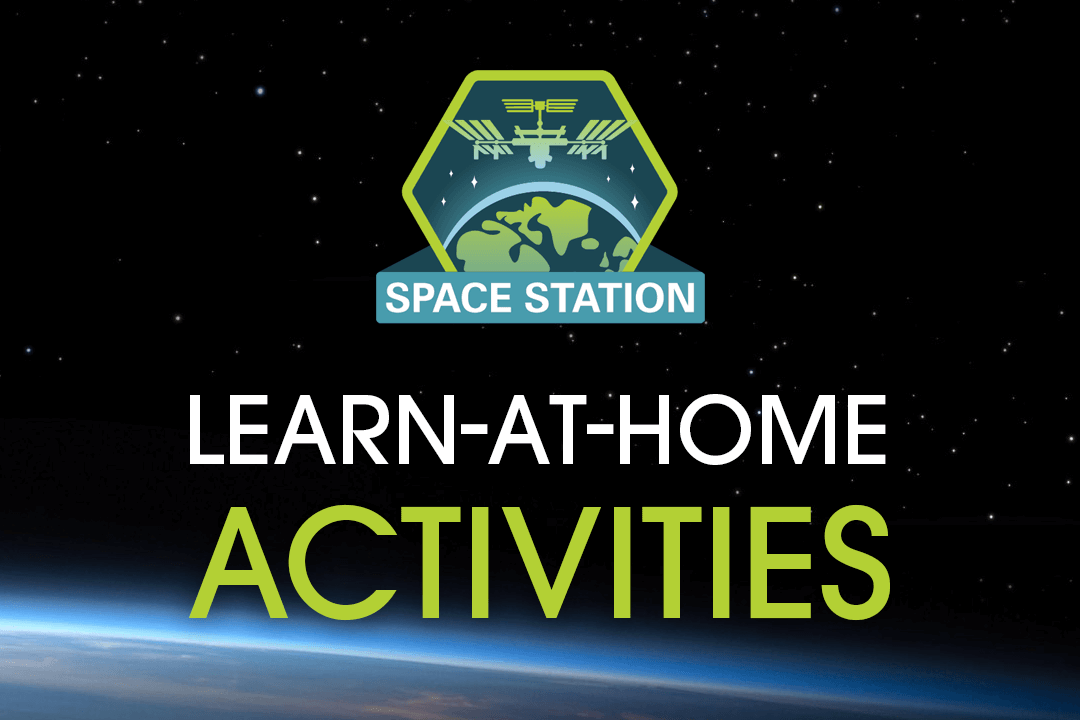The environment on the International Space Station changes both plants and astronauts in ways that affect the flavor of space-grown crops.

NASA astronaut Kjell Lindgren extracts the collapsible growth chamber from the Veggie unit to harvest red lettuce.
Media Credit: Image courtesy of NASA
In 2015, astronauts grew and ate red lettuce on the ISS as part of the Veggie experiment. How did their crop taste? Kjell Lindgren declared the lettuce “awesome,” and JAXA astronaut Kimiya Yui agreed that he liked it. But it tasted slightly more bitter than usual for that type of lettuce. “It tastes like arugula,” said former NASA astronaut Scott Kelly. This did not surprise Dr. Gioia Massa, the NASA project scientist for Veggie. “The plants in this group get more bitter compounds if they’re under some stress,” Massa said in an interview.
Plants experience stress when environmental conditions such as sunlight, temperature, and moisture are outside the ideal range. Damage from disease or insects are other sources of stress. And all Earth life forms, from plants to ants to humans, are stressed by the microgravity environment on the ISS—evolution did not prepare us for weightlessness!

Astronauts Scott Kelly, Kjell Lindgren, and Kimiya Yui enjoy their first taste of lettuce they grew on the Space Station.
Media Credit: Image courtesy of NASA
In response to stress, plants produce protective chemicals that can hinder the growth of nearby competing plants, prevent the growth of disease-causing bacteria and fungi, and discourage insects and animals from eating the plants. Natural protective chemicals made by lettuce, chicory, and related plants, known as sesquiterpene lactones, have a bitter taste. Plants under stress make more of these chemicals and taste more bitter. But that’s not a bad thing. Ground-based research suggests that these chemicals are probably beneficial to our health. They help reduce inflammation and prevent tumors in mice.
The astronauts don’t mind the extra bitterness, preferring strong-tasting foods. “In space,” Massa said, “having that enhanced flavor is actually really desirable.” When you’re weightless, the fluids in your tissues and blood vessels shift to be more evenly distributed throughout your body, instead of being pulled down toward your feet. The extra fluid in your head causes slight sinus congestion, which prevents the smell detectors in your nose from working properly. Experiencing the flavor of food involves our senses of both smell and taste. As anyone who’s had a cold knows, it’s hard to enjoy delicate aromas and flavors with a stuffy nose.

Canadian astronaut Chris Hadfield adds hot sauce as he prepares a burrito on the International Space Station.
Media Credit: Image courtesy of Tested and the Canadian Space Agency
The astronauts’ noses might be stuffy, but their taste buds still work, so they can detect fundamental tastes such as sweetness, saltiness, and bitterness. They can also detect the heat of spicy foods. During his time as commander of the ISS, Canadian astronaut Chris Hadfield said, “Eating in space is like eating with a head cold. You just can’t taste very much. So because of this, a lot of our food tastes kind of bland. That’s why we like especially spicy food here, like shrimp cocktail with horseradish sauce. It’s probably my all-time favorite because it has a real bite.”
So the answer is yes: lettuce does taste different in space, partly because the plant makes bitter chemicals under stress, and partly because living in microgravity affects your senses of smell and taste!





